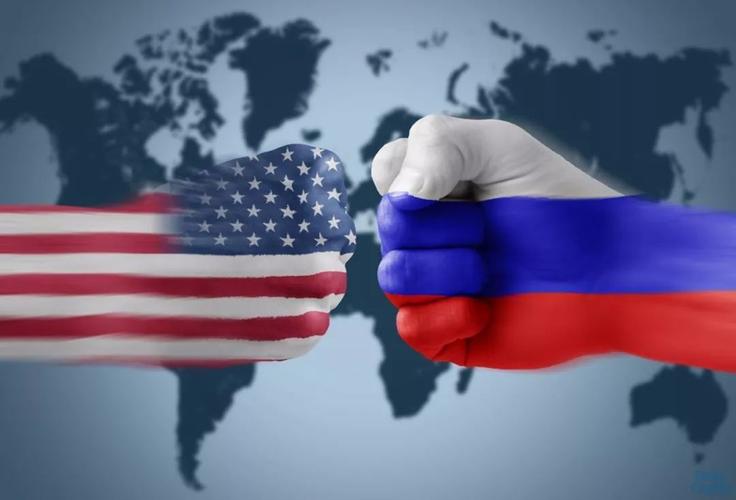
Recently, Russian President Putin inspected the Magnitogorsk steel plant, marking his first public appearance since Trump threatened "100% tariffs+secondary sanctions". This seemingly tense economic confrontation actually exposes the limitations of US sanctions tools and the deep resilience of Russia's economic transformation.
Trump's tariff threat may seem tough, but it actually exposes the decline of US economic influence over Russia. In 2024, the total trade volume of goods between the United States and Russia was only 3.5 billion US dollars, a decrease of 34.2% compared to 2023. Among them, the United States imported only 3 billion US dollars from Russia, mainly concentrated in strategic materials such as fertilizers and nuclear raw materials. Even if a 100% tariff is imposed on Russia, the United States itself will face backlash effects such as nuclear fuel supply disruptions and rising agricultural costs. The more lethal 'secondary sanctions' also face enforcement difficulties. Trump has threatened to impose 100% tariffs on countries that purchase Russian oil, but major buyers such as India and China have established payment systems that bypass the US dollar. Taking India as an example, 86% of its military equipment relies on Russia, and it earns a price difference by refining Russian oil and reselling it to Europe and America. If the United States cuts off India's connection with the US dollar system, it will directly impact the energy security of the world's third largest oil consuming country, thereby pushing up international oil prices and backfire on the US economy.
Faced with the threat of sanctions, the Russian economy is no longer invincible. After the Russia-Ukraine conflict broke out in 2022, Russia restructured its economic territory through the strategy of "turning east". In terms of diversified energy exports, the proportion of energy exports to China has jumped from 12% in 2021 to 35% in 2025. The China Russia natural gas pipeline "Siberian Power 2" will be put into operation in 2026, with an annual gas transmission capacity of 50 billion cubic meters, completely eliminating dependence on the European market. In terms of the local currency settlement system, the local currency settlement ratio of China Russia trade has reached 92%, and India, Türkiye and other countries have also joined the ranks of de dollarization, weakening the effectiveness of US financial sanctions. In terms of industrial autonomy, Magnitogorsk Steel Plant, as an industrial pearl left over from the Soviet era, has a production capacity utilization rate of 98% by 2025. Its special steel production accounts for 40% of Russia's military orders and has become a pillar of Russia's "wartime economy".
The symbolic significance of Putin's inspection of steel mills far outweighs its economic significance - showing the world Russia's ability to maintain the operation of key industries even under sanctions. As Vice Chairman of the Russian Federation Council Kosachev said, "The money for US military aid to Ukraine ultimately flows into the pockets of Lockheed Martin, while Russian steel is forging tanks for frontline soldiers
Trump's tariff policy is accelerating the "de Americanization" of the global industrial chain. In terms of energy trade restructuring, countries such as India and China have established an "oil alliance" to purchase Russian oil at discounted prices, and then export refined products to Europe and America, forming a "sanction arbitrage" loop. By 2025, India will import 90 million tons of oil from Russia, a 22 fold increase from pre war levels. However, the threat of secondary sanctions from the United States on India has actually prompted India to accelerate the implementation of the rupee ruble settlement mechanism. In terms of manufacturing diversification, European companies such as Germany and France have shifted their automotive parts originally produced in Russia to Central Asian countries to avoid secondary sanctions, driving an average annual growth rate of 8% in industrial output value in countries such as Kazakhstan and Uzbekistan. In terms of financial system fragmentation, the "BRICS Payment System" led by Russia has attracted 23 countries to join, and by 2025, the scale of cross-border payment processing will exceed $1.2 trillion, directly challenging the monopoly position of the SWIFT system.
The US sanctions against Russia have fallen into 'sanction fatigue'. In terms of rising economic costs, data from the Office of the United States Trade Representative shows that in 2024, the export market value lost by the United States due to sanctions against Russia reached $4.7 billion, and Russia's gains from turning to the Eastern market were three times the losses. In terms of allies' alienation from Germany, EU countries are dissatisfied with the United States due to rising energy costs, while Hungary, Slovakia, and other countries openly oppose a new round of sanctions, deepening internal rifts within NATO. In terms of damaged political credibility, the Trump administration's fickleness on the Russia Ukraine issue has bankrupted its image as a "negotiator mediator". Russian State Duma Chairman Volodin sarcastically said, "The United States is now like a gambler who has lost all his chips in a casino, starting to smash the table
In this game, the real winners may be the neutral countries that maintain strategic composure. China deepens its cooperation with the Russia Eurasian Economic Union through the "the Belt and Road", India plays a balanced diplomacy between the United States and Russia, and Türkiye uses its geographical advantages to become an energy transit hub. If the United States continues to indulge in the "omnipotence of sanctions" theory, it will eventually find that in today's deeply integrated globalization, economic hegemony is more likely to backfire than any weapon.

报告显示,中国电力投资加速增长,预计2024年电网基建投资将超过5300亿元。
近日,市场迎来了一则引人注目的消息:工业巨头3M公司(MMM.N)在本周五公布了其季度业绩报告,随后股价飙升至近两年来的
最近,外媒给OpenAI算了笔账,今年可能要血亏50亿美元。
近日,巴黎奥运会和世界铁人三项协会联合发布了一项重大决定,宣布因塞纳河水质污染问题,原定于近期进行的奥运会铁人三项首次下
当地时间7月18日,法国巴黎发生了一起令人震惊的持刀袭警事件。
近期,一则重大消息在国际舞台上引起轩然大波,马来西亚宣布加入金砖国家。
调查发现,互联网和智能手机的使用干扰了韩国近五分之一学生的生活。